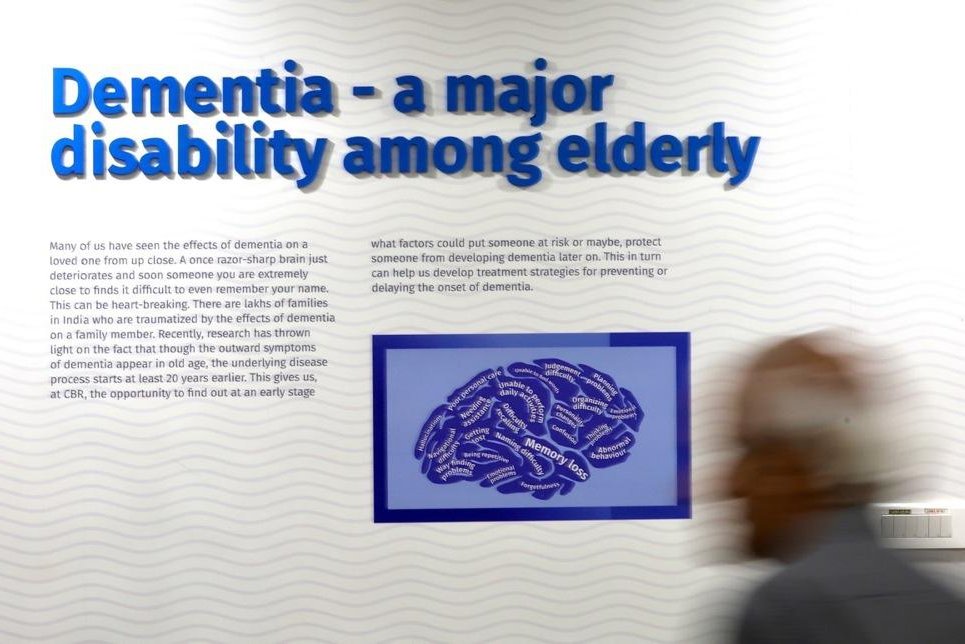At an awareness seminar on World Alzheimer’s Day in Bangalore, India, in 2024, a participant walks past. On Wednesday, University College London medical researchers announced what they say is the world’s first successful treatment for Huntington’s disease, which causes dementia. File Photo by Jagadeesh Nv/EPA
Sept. 24 (UPI) — Researchers at University College London reported success in treating Huntington’s disease with gene therapy, which is the world’s first to prove successful.
The gene therapy slowed the disease’s progress by 75% in patients over three years during the U.K. trial, according to The Guardian.
“We now have a treatment for one of the world’s more terrible diseases,” said Sarah Tabrizi, the director of the Huntington’s Disease Center at University College London.
“This is absolutely huge,” Tabrizi added. “I’m really overjoyed.”
The treatment slows mental decline to such an extent that what normally would occur over a year when untreated would take up to four years to occur, Tabrizi told the BBC.
“We never in our wildest dreams would have expected a 75% slowing of clinical progression,” Tabrizi said.
She said slowing the effects of Huntington’s disease gives patients a “good quality of life” for many more decades.
The gene therapy treatment requires brain surgery that lasts for between 12 and 18 hours.
The number of patients who participated in the clinical trial was not announced, but one who had been retired for medical reasons has resumed working, according to the BBC.
Other trial participants are able to walk instead of using wheelchairs, which they otherwise would have needed.
Huntington’s disease is a genetic defect that passes from generation to generation within families and leads to dementia, paralysis and death, according to the Huntington’s Disease Society of America.
It has the same cause as other types of dementia-inducing diseases, including Alzheimer’s and Parkinson’s.
Alzheimer’s affects memory, while Parkinson’s and Huntington’s disease target movement.
A 2016 study done by researchers at Case Western University in Cleveland indicated valosin-containing protein might protect patients against Huntington’s disease.
Huntington’s disease symptoms often start to develop in people between ages 30 and 50, but it also could affect children and young adults, according to the HDSA.
About 41,000 Americans exhibit the disease’s symptoms, and more than 200,000 are at risk of inheriting the disease.
